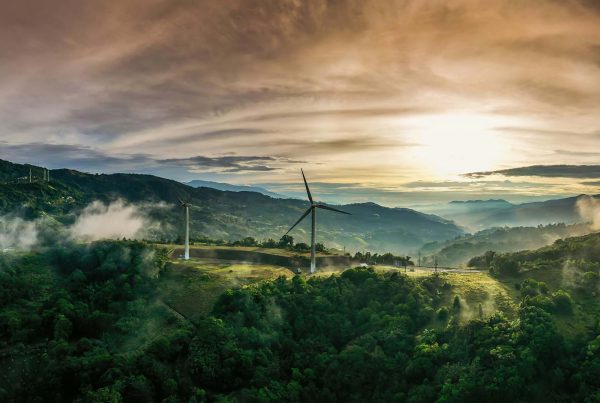In the face of the climate crisis and biodiversity loss, effective leadership in ecological initiatives is more critical than ever. Leaders must navigate the complexities of decolonising land while ensuring their efforts are inclusive and considerate of local communities.
Yolanda Busbee Methvin shares her thoughts on the essential leadership qualities required to drive ecological change, the key challenges in decolonising land, and strategies for making these processes inclusive and community led. Through these insights, Yolanda aims to provide leaders with the understanding needed to foster sustainable and equitable environmental practices.
1. How do leaders ensure their ecological initiatives are inclusive and considerate of local communities?
Regarding sustainable and inclusive ecological projects, it’s crucial to keep a few principles in mind to ensure leader-driven initiatives truly benefit our communities and local environments. Imagine if we controlled the funding for our local projects. By decentralizing financial resources and setting up local financial groups like initiatives such as Bioregional Financing Facilities (BFFs), put forward by London’s, Dark Matter Labs; local inhabitants could decide how to use funds for projects that matter most to them. Bioregional Finance is a system where financial resources are managed within a specific ecological and cultural region, known as a bioregion. Our local communities are rich with traditional and Indigenous knowledge about sustainability and thrive-ability. By combining this wisdom with modern science, great results can be achieved.
2. What are the key challenges in decolonising land, and how can leaders navigate them effectively
Considering the challenge of decolonising the land, we must acknowledge that our financial systems have roots in colonialism and capitalism, both of which often harm underdeveloped and under-resourced local communities the most. Redistributing resources fairly correct these injustices. Decentralized Finance (DeFi) is a financial system operating without traditional banks, using blockchain technology for more direct and transparent control over resources. Emerging technologies such as DeFi, can work directly toward redressing this issue. As the current environmental crisis demands urgent solutions; Leaders need to quickly mobilize resources for impactful projects. Those who live locally know best how to manage local environments; natural, communal and ecological resources. Empowering local people with regenerative resources and place-based decision-making power enhances success.
3. What leadership qualities are essential for driving ecological change in the face of the climate crisis and biodiversity loss?
Environmental, social, and economic systems are interconnected. Collaborative efforts among local communities, NGOs, governments, and businesses create holistic solutions. Decolonization of land to me, means returning control of land to Indigenous and local communities, respecting their rights and traditions amidst the changing technological and migrational realities of our times. This can be challenging but is essential for true inclusivity and justice. Leadership qualities which serve these goals and aims most can be found within the regenerative principles of Life Centred Design and Biomimicry, for example. By embracing these principles which simplistically reflect how life naturally evolves to sustain life, we can ensure our ecological initiatives are inclusive and considerate, thereby creating sustainable, positive changes for everyone.
4. Are there strategies that leaders can be aware of to ensure the decolonisation of land processes is genuinely inclusive and community-led?
I have recently become involved with an ambitious strategy, which is based in the Breede River Valley, in the Western Cape, South Africa. Working with other Land Use Management professionals and Indigenous Knowledge Systems leaders, we have devised a Fynbos Bioregion Lens and Lab, which is currently incubating a particularly unique agricultural project, freeing the land from economic and industrial encumbrances and rather seeking to return it to its self-regenerating capacity as a common asset, within the local community. Held within a community land trust, it further affirms the recent Bioregional Finance Facilities model put forward by Dark Matter Labs. As their intention and strategic model proclaims “Bioregional Financing Facilities can…help align financial flows with living systems principles and Indigenous wisdom, to serve the thriving of all life on Earth. [They can] become this connective tissue – using a systemic investment lens to facilitate the flow of resources and regeneration benefits between these two currently disconnected groups of actors to support regeneration free of externalities, exploitation, and oppression.” Strategies such as these can contribute collaboratively to the decolonisation aims and interests within the Global South and beyond.




